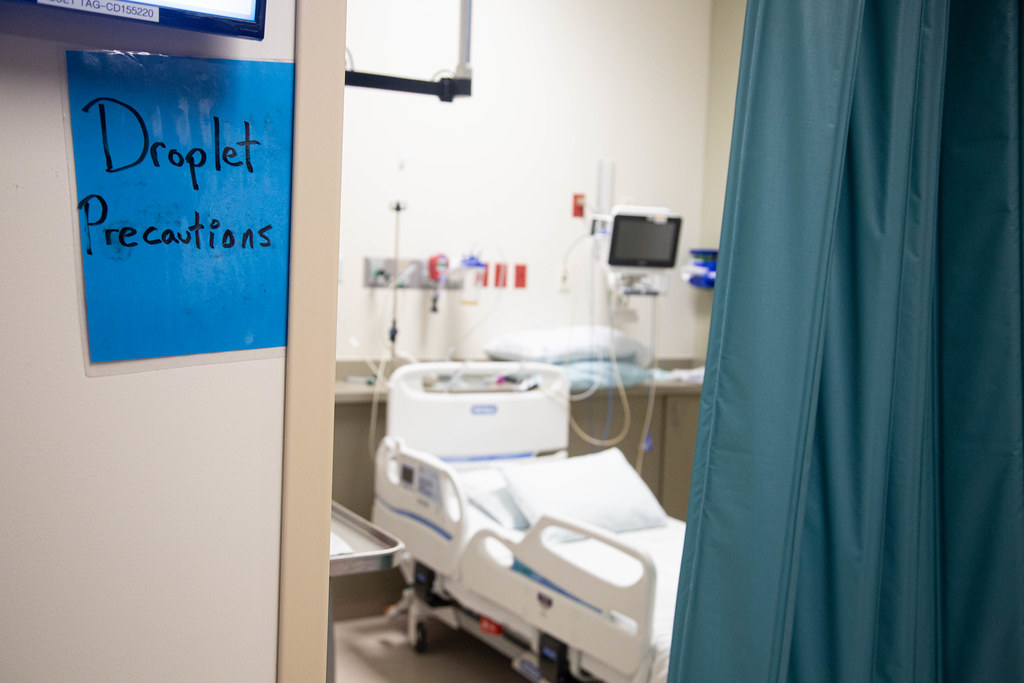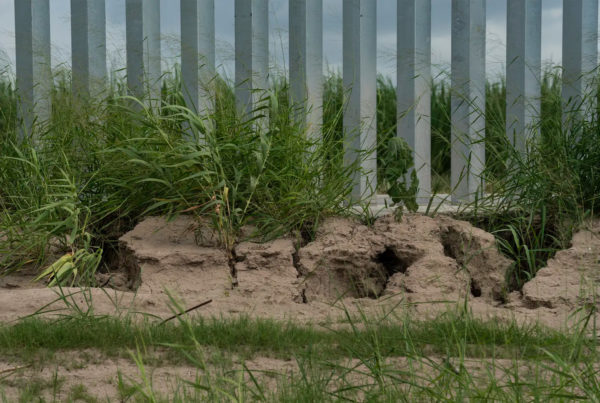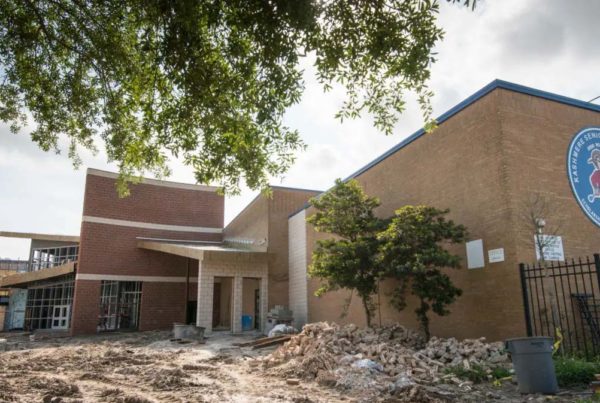Hospitals across the United States are dealing with a combination of illnesses that are once again putting a strain on resources. And a San Antonio doctor fears this is just the beginning of what could be another very trying season for health care systems and employees.
The challenge is coming from three fronts: COVID-19, influenza, and Respiratory syncytial virus (RSV). Dr. Mehmood Khan is CEO of IPHA Physician Group in San Antonio. He says we can label this a “tridemic” but really this is people with increased vulnerability, perhaps from a previous COVID-19 infection, getting much sicker from what may normally be considered a common cold.
He says COVID-19 and flu vaccinations are the preventative measures people should be taking now if they haven’t already.
Listen to the interview with Dr. Khan in the player above or read the transcript below.
This transcript has been edited lightly for clarity:
Texas Standard: What are you seeing in San Antonio hospitals right now?
Dr. Khan: You probably have seen in the last three years that we have gone through an unbelievable time of crisis constantly and our hospitals have seen the pandemic in the most terrible way. But now, when we were having a breather in the last four or five months, we are hit by flu, which has overwhelmed the system for our adult population, especially the elderly and people who have other medical conditions. And RSV has been, you know, unfortunately very bad for the pediatric population. So their ICUs are full also.
Could you say more about what RSV is?
It’s a very common cold type of virus, respiratory syncytial virus. But it’s more harmful and more serious in a pediatric population. You know, younger kids or some people who have chronic lung diseases also, they tend to get a little bit of flare up. And as you know, that during the last few years, we already had been seeing a significant gradual rise in cases of children getting affected by RSV. There is no vaccine for it. I think [what we should do is] just the regular precaution in the schools, you know, washing their hands …
The children get very, very sick sometimes. It’s a very small percentage, maybe 1% or 2%. But that percentage is significant enough for the health care system, which already is having a hard time coping with a pandemic.
Is the strain on hospitals happening all across Texas?
Yeah, I think so. It’s across it because, you know, we work in a lot of southern counties. We work in transitioning of patients coming to San Antonio all the way from Del Rio to Laredo, Pearsall, Crystal City, and as well as going all the way into the Kenedy, Texas and Beeville.
So we are seeing the same thing. The flow of patients coming from there with respiratory viruses and, you know, seem like they already have a significant worsening of their pulmonary diseases because some of these people had COVID in last two or three years. They survived that. And now, you know, their resistance to these organisms and their body’s not able to handle it and they are requiring more and more oxygen and requiring more and more utilization from the health care hospital systems.
Some are calling this a “tridemic” – would you characterize it that way?
You know, these are just fancy terminology, I think. We already had an elderly, aging, more sick population. And on top of that, it’s like, you know, smoking was already causing a lot of problems in people going forward with chronic lung diseases and they were getting COVID, kind of further damaging their lungs. So the same thing is going on now when they are having flu affecting the lungs, they are requiring more and more utilization of the healthcare system than otherwise a flu patient would be.
People are still not vaccinated. I think that has been a big problem.
How do the symptoms between COVID-19, influenza, and RSV vary?
The flu and RSV are traditionally the old cold viruses which we’ve had. COVID had some interesting different symptoms when it initially started. But as the different variants have gone through, it has become somewhat of a GI tract virus. A majority of new patients are presenting with nausea, vomiting, diarrhea.
In the last couple of weeks what we have seen, COVID is coming back causing respiratory problems, bilateral involvement of the lungs. But we had stopped seeing those. It had more become like the GI virus affecting the gastrointestinal tract.
But all of them have one thing common: they all have fever, body aches, and, you know, you feel sick for a couple of days and then your body starts to get better.
Why are we seeing such a surge in the hospitals now? Is it because of the colder weather, because people have let their guard down a bit, because there are more family gatherings?
I think a combination of all those things. I think we do have very good preventative vaccines available. People are not utilizing that for flu. I think there has been hesitance about that.
Second thing, I think our body was very well protected for the last three years. We were wearing masks, we were using mitigation efforts. And, you know, unfortunately or fortunately, your immune system builds upon, you know, a little bit of exposure to these viruses and we probably protected ourselves too good. So now there is a rebound effect and I think people were also tired of doing the same thing. So it’s just a cycle.
The problem is our healthcare sector — you know, it’s been very resilient. If you look at it, it’s almost like we are in a state of war for last two years. Our hospitals are constantly full anyway. You know, people had to postpone their surgeries, postpone their cancer procedures, and they are also trying to get back in line and get their things taken care of. You know, our nursing staff has just constantly been trying and trying and trying and working to help people out in this crisis.
What should folks be doing now to slow the spread of these illnesses?
Again, vaccination. And identifying the elderly, you know, who get more sick. People who have multiple medical conditions – like people on dialysis or people who have required hospitalization in the last one or two years due to lung disease or heart disease or diabetes, especially – those are the one we should be trying to protect. Still trying to use some mitigation effort when interacting with those people.
And I think our health care sector needs to request insurance companies to help expedite the approval process for a lot of patients who are stuck in the hospital. I would say 20%, 30% of the population can be moved out of the hospital. They can transition to a nursing home or rehab. They’re waiting for authorization. I think that’s one of the biggest challenges. We can improve the flow of patients through the hospital so that our patients stop waiting in the emergency room for more than 24 hours, which I think is a very serious problem itself.
» MORE: FAQ: What you need to know about the new omicron boosters
Do you think things are going to get worse before they get better?
I think we are just in the beginning of, unfortunately, this crisis and probably we will see how things go on during the holidays. I think things are going to get, unfortunately, a little worse.
Should people be changing their holiday plans?
You know, not completely. I think the mitigation effort as CDC guidelines will come around – especially for local counties or the local areas, local cities, isolated locations where the numbers have significantly come up – I think people should be looking forward to that information shared by the local city people.
And then the second thing I think is going to be more important is protecting the elderly and keeping yourself vaccinated. I don’t think there is anything extra the general population can do in terms of how we are doing.













